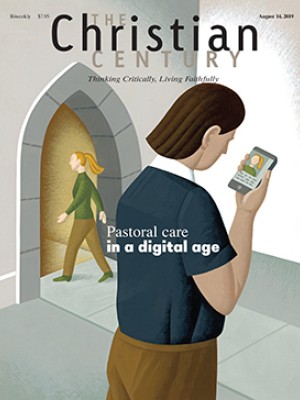At summit on religious liberty, US launches plans for new international alliance
Trump administration officials announced a new international alliance focused on religious freedom and imposed new sanctions against foreign military officials supporting religious persecution.
Those developments on July 18 were among the highlights of the State Department’s two-day Ministerial to Advance Religious Freedom. Foreign ministers took turns stating ways their nations are working to affirm religious liberty, survivors shared their stories of persecution, and some of the almost 900 religious leaders and activists in attendance made plans to foster interfaith understanding.
Before representatives of 106 countries in Washington, D.C., Secretary of State Mike Pompeo announced plans to create the International Religious Freedom Alliance.
“We hope that this new vehicle—the first-ever international body devoted to this specific topic—will build on efforts to date and bring like-minded countries together to confront challenges of international religious freedom,” he said. “It will provide a space for the work that we do here to flourish throughout the year.”
Read our latest issue or browse back issues.
Vice President Mike Pence announced that the US had placed sanctions on two leaders of Iranian-backed militias, groups he said have “terrorized the people of the Nineveh Plains,” a region of northern Iraq where religious minorities, including Christians and Yazidis, are persecuted.
“The United States stands with all victims of religious persecution, and the American people have them in our hearts—and in our prayers,” said Pence.
Earlier in the week, the administration placed designations on several military officials in Myanmar to prevent them from entering the United States due to what the State Department said was their involvement in the ethnic cleansing of Rohingya, a Muslim ethnic minority with some 700,000 members who have been forced into refugee camps in neighboring Bangladesh.
Over the course of the three days, speakers hailed religious freedom victories that had occurred since a similar gathering was held a year ago. One such victory was the release of Pastor Andrew Brunson, an American evangelical detained in Turkey for two years.
Numerous speakers, from scholars to envoys of religious freedom to clergy, called for making legislative changes toward greater religious liberty. They also called for increased interfaith education and personal relationships across divides of faith.
“What purpose is served by human forays into outer space if we’re still incapable of understanding our fellow global citizens, our neighbors, and even ourselves here on earth?” asked Shaykh Abdallah bin Bayyah, president of the Abu Dhabi–based Forum for Promoting Peace in Muslim Societies. His remarks, spoken in Arabic, were translated by Sheikh Hamza Yusuf, cofounder of Zaytuna College in Berkeley, California.
Texas evangelical minister Bob Roberts, who took part in a panel discussion with Rabbi David Saperstein, former US international religious freedom ambassador, and Imam Mohamed Magid, former president of the Islamic Society of North America, suggested ways Christians, Jews, and Muslims could get to know each other in their local communities. He advocated for visiting each other’s houses of worship and dining in each other’s homes. —Religion News Service





